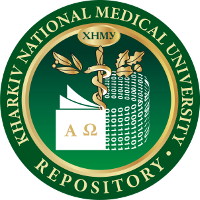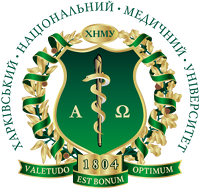Please use this identifier to cite or link to this item:
http://repo.knmu.edu.ua/handle/123456789/22174Full metadata record
| DC Field | Value | Language |
|---|---|---|
| dc.contributor.author | Stupnytskyi, Myroslav | - |
| dc.contributor.author | Zhukov, Viktor | - |
| dc.contributor.author | Biletskii, Oleksii | - |
| dc.contributor.author | Gregus, Michal | - |
| dc.date.accessioned | 2018-12-22T06:45:31Z | - |
| dc.date.available | 2018-12-22T06:45:31Z | - |
| dc.date.issued | 2018-11 | - |
| dc.identifier.citation | Application of Cluster Analysis for Determination of the Oxidative Stress Decompensation Criteria / M. Stupnytskyi, V. Zhukov, O. Biletskii, M. Gregus // Proceedings of the 1st International Workshop on Informatics & Data-Driven Medicine (Lviv, November 28–30, 2018). – Lviv, 2018. – P. 56–64. | ru_RU |
| dc.identifier.uri | https://repo.knmu.edu.ua/handle/123456789/22174 | - |
| dc.description.abstract | This case-control study was conducted on 73 male patients with combined thoracic injuries. The main goal of the current study was to investigate oxidative damage of proteins and lipids in patients with the severe combined thoracic trauma on the first days after injury. The second aim was to evaluate the possibility of outcome prediction through oxidative stress markers determination. Concentrations of malonic dialdehyde and proteins carbonyl groups were determined according to spectrophotometric methods. As there were no differences between survival and nonsurvival groups of patients for oxidative stress markers, cluster analysis was performed for stratification of patients’ population by both oxidative stress markers simultaneously. It was found that oxidative stress develops from 1-2-nd day after the severe combined thoracic trauma and generally its level can be reliably estimated through determination of relative concentrations of both malonic dialdehyde and proteins carbonyl groups. The degree of oxidative stress is proportional to the severity of injury and patients’ state on admission (traumatic shock) and does not depends on patients’ age and concomitant alcohol exposure. Also its progression is not linear as the result of severe drop of the oxidative stress markers` concentration in premorbid phase of wound dystrophy. Cluster analysis is useful tool for analyzing medical and biological data from investigations when synergistic multifactorial relations are present between pathophysiological processes that are determined by interactions with compensatory and adaptive mechanisms directed at homeostasis saving during critical states. | ru_RU |
| dc.language.iso | en | ru_RU |
| dc.subject | combined thoracic trauma | ru_RU |
| dc.subject | oxidative stress | ru_RU |
| dc.subject | malonic dialdehyde | ru_RU |
| dc.subject | carbonyl groups of proteins | ru_RU |
| dc.subject | outcome prediction | ru_RU |
| dc.subject | cluster analysis | ru_RU |
| dc.title | Application of Cluster Analysis for Determination of the Oxidative Stress Decompensation Criteria | ru_RU |
| dc.type | Article | ru_RU |
| Appears in Collections: | Наукові праці. Кафедра біологічної хімії | |
Files in This Item:
| File | Description | Size | Format | |
|---|---|---|---|---|
| Жуков_1.pdf | 833,64 kB | Adobe PDF |  View/Open |
Items in DSpace are protected by copyright, with all rights reserved, unless otherwise indicated.

